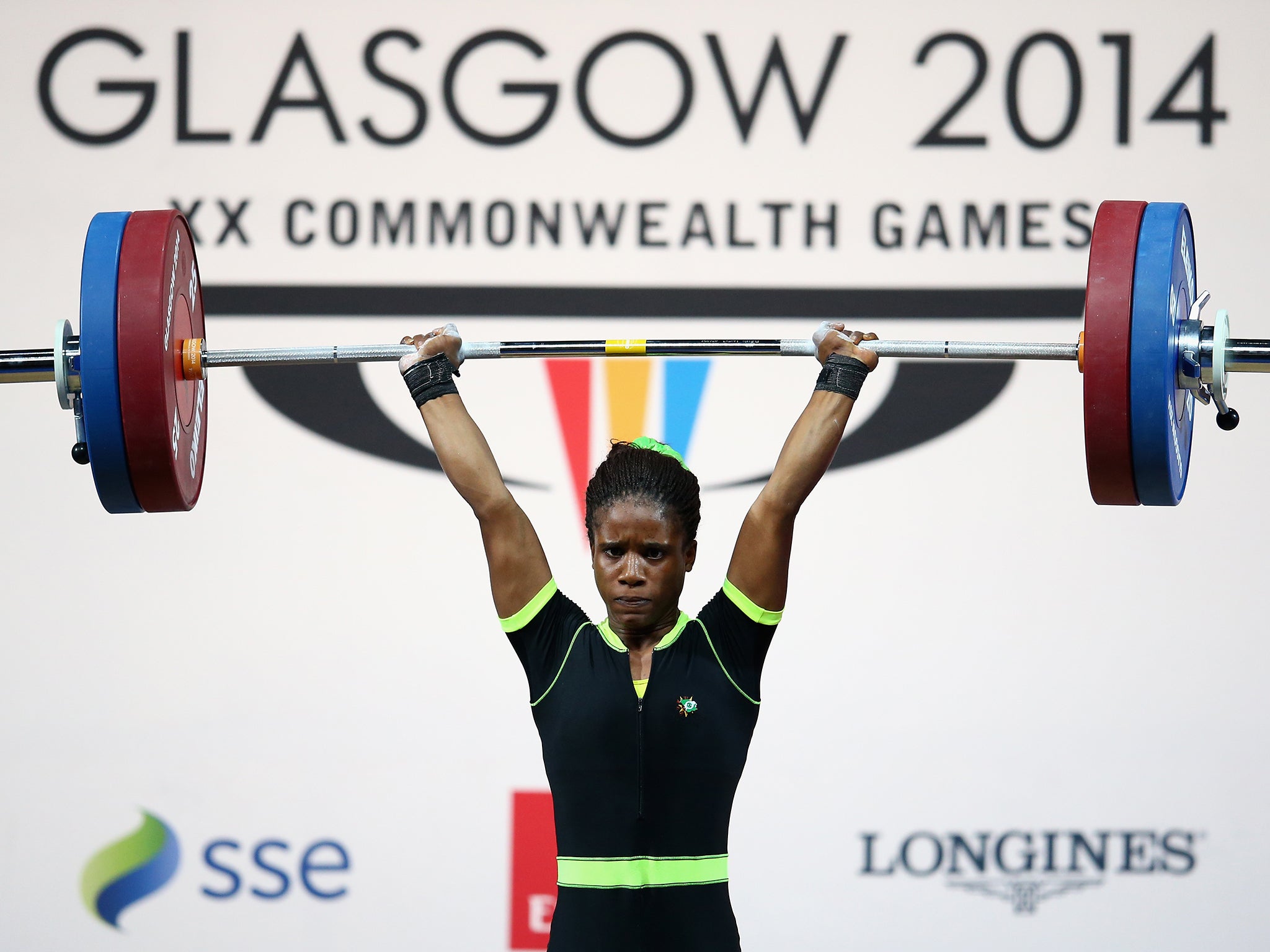Commonwealth Games 2014: Weightlifting gold medallist tests positive for drugs
16-year-old Nigerian Chika Amalaha provisionally suspended

Your support helps us to tell the story
From reproductive rights to climate change to Big Tech, The Independent is on the ground when the story is developing. Whether it's investigating the financials of Elon Musk's pro-Trump PAC or producing our latest documentary, 'The A Word', which shines a light on the American women fighting for reproductive rights, we know how important it is to parse out the facts from the messaging.
At such a critical moment in US history, we need reporters on the ground. Your donation allows us to keep sending journalists to speak to both sides of the story.
The Independent is trusted by Americans across the entire political spectrum. And unlike many other quality news outlets, we choose not to lock Americans out of our reporting and analysis with paywalls. We believe quality journalism should be available to everyone, paid for by those who can afford it.
Your support makes all the difference.The future of weightlifting as a core sport in the Commonwealth Games programme has again been thrown into doubt after Nigerian 53kg gold medallist Chika Amalaha tested positive for drugs.
The 16-year-old Nigerian has been provisionally suspended pending the results of a 'B' sample after traces of diuretics and masking agents were found in an in-competition test.
Amalaha won the gold medal at the Clyde Auditorium on Friday, setting new Games records in her weight category in both the snatch and overall elements.
Commonwealth Games Federation chief executive Mike Hooper said: "We [have] issued a formal notice of disclosure to an athlete following an adverse analytical finding as a consequence of an in-competition test.
"That athlete is Nigerian weightlifter Chika Amalaha who was tested on July 25th. That athlete has now been suspended from the Commonwealth Games in Glasgow.
"The relevant processes, as detailed in our anti-doping standard for the Games, are now being followed and Ms Amalaha has pursued her right to have her 'B' sample tested.
"This will take place at an accredited laboratory in London tomorrow, July 30. Upon receipt of those results the process will continue."
Asked about the legitimacy of weightlifting as a Commonwealth Games sport given its history of drug-related incidents, Hooper added: "I think weightlifting is a fantastic sport and a strong Commonwealth and Olympic sport.
"I think the issue here is about showing we have a robust anti-doping programme in place. We want to send a message to anybody in any sport who would go down the route of taking any substance to enhance performance that they will be caught."
WADA president Sir Craig Reedie expressed his shock that someone so young should have failed a doping test - and it is understood the anti-doping organisation will investigate how the teenager was given access to the drugs.
Reedie told Press Association Sport: "I am very disappointed that somebody as young as that appears to have committed an offence at a multi-sport event like the Commonwealth Games."
Drug use in weightlifting has been prevalent enough in the past to beg questions over the sport's continued participation in the Commonwealth programme.
After two Indian lifters tested positive at the Melbourne Games in 2002, the then CGF president Mike Fennell said: "If the thing gets totally out of hand and its not being corrected, then obviously we'll have to take the strongest possible action."
Nigerian weightlifting also has a history of drugs offences. The Nigerian Weightlifting Federation was suspended for repeated doping violations by the International Weightlifting Federation in 2001 and banned from competing in the following year's Manchester Games.
The Nigerian Daily Times newspaper laid bare the drugs issues affecting sport in the country in an investigation in 2011. It reported: "A tour of the national stadium earlier this year.. revealed discarded cases of used syringes, empty injectable vials of stanazol and sustanol, packets and bottles of different anabolic substances."
PA
Join our commenting forum
Join thought-provoking conversations, follow other Independent readers and see their replies
Comments